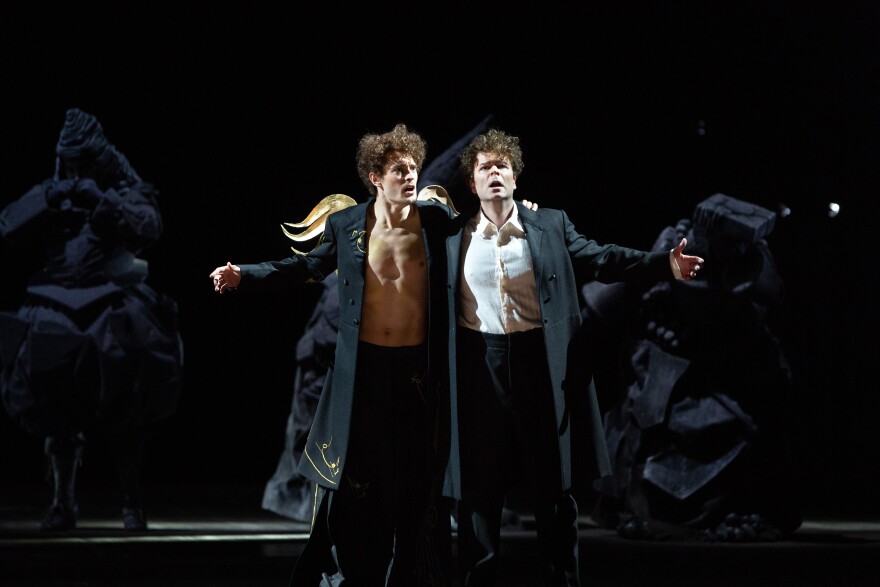The Metropolitan Opera is back on WRTI! Saturday, December 4th at 1 PM, tune in for a performance of Matthew Aucoin's new opera, Eurydice, an intriguing updated version of the Orpheus myth. Here, the composer talks with us about the power of music and words, grief and love, and about the ways in which the story speaks to us today.
You can check out the entire Met Opera Saturday Matinee broadcast season on WRTI here.
Aucoin calls the classic Orpheus myth “a brutally honest story” about human nature. “It says music can conquer death, but human beings are always going to screw things up.”
The Greek myth focuses on Orpheus. Heartbroken after his bride Eurydice dies, he travels to the underworld with his lyre, determined to rescue her and return to the mortal world. His music pleases Hades, who decides to allow Orpheus to take Eurydice back on this condition: she will walk behind her husband, who must NOT turn around to make sure she is there. (Take a guess how well that turns out.)
This new opera looks at this story of love and loss from Eurydice's perspective. Here is Erin Morley as Eurydice in rehearsal at The Metropolitan Opera, singing about what it's like to be in love with an artist:
Based on a play by librettist Sarah Ruhl, the opera explores Eurydice's experience in the underworld, where she encounters her dear late father. It’s a story line inspired by Ruhl’s grief about losing her own father.
The central question we’re asking, in a way,” says composer Matthew Aucoin, "is what would you say to a loved one if you could meet them after death?’
A tale for the 21st century
Elements of contemporary life pull the ancient myth into modern times. They include an interesting but dangerous man in a penthouse, an elevator that rains water on its occupants, erasing memories as it plunges to the underworld, and a volume of Shakespeare that helps restore language.

Expressing the story in a way only music can - from subway sounds to psychological drama
Music in opera is the essence of the art form, “like the air that you breathe,” says Aucoin. “So this causes certain strange and surreal conditions, because if you're communicating through music, you're in a kind of dream world.”
And so the sound of an elevator to the underworld may remind some of the screech of a New York subway. “There’s a moment when Eurydice hallucinates that she's at a train station,” says Aucoin. “And I actually did write the sound of a New York subway train leaving the station into the music. The pitches are remarkably consistent, and you can actually notate the sound of a subway pulling out pretty exactly. There is a special satisfaction in hearing this wonderful Met orchestra playing the sounds that are rumbling beneath our feet on 65th street.”
Music can also express a character’s psychological state. In the ancient myth, for example, Orpheus, is part mortal, but as the son of Apollo, he is also part divine. In this opera, Orpheus is an ordinary man with an extraordinary musical talent. Aucoin wanted to express that duality.
“So the human Orpheus, the regular dude Orpheus, is sung by a baritone. But when he goes into one of his musical trances, he is joined by a countertenor, one of the highest male voice types. And so there's a kind of ethereal or otherworldly quality to some countertenor singing and I loved the texture that it created to have this kind of halo of sound around the baritone.”

In opera, says Aucoin, nothing can ever be completely realistic, “because you know everyone’s singing, so it’s automatically surreal and for me that’s liberating. Because, in the same way that you can say things in a dream that you would never say in real life, you can say things in opera and music that are in other registers, and they get at a truth that couldn’t be spoken in any other way.”
“The music is the bottom line,” he says. “So for a composer, it's quite thrilling, because an opera is basically like a planet that's made of music.”

